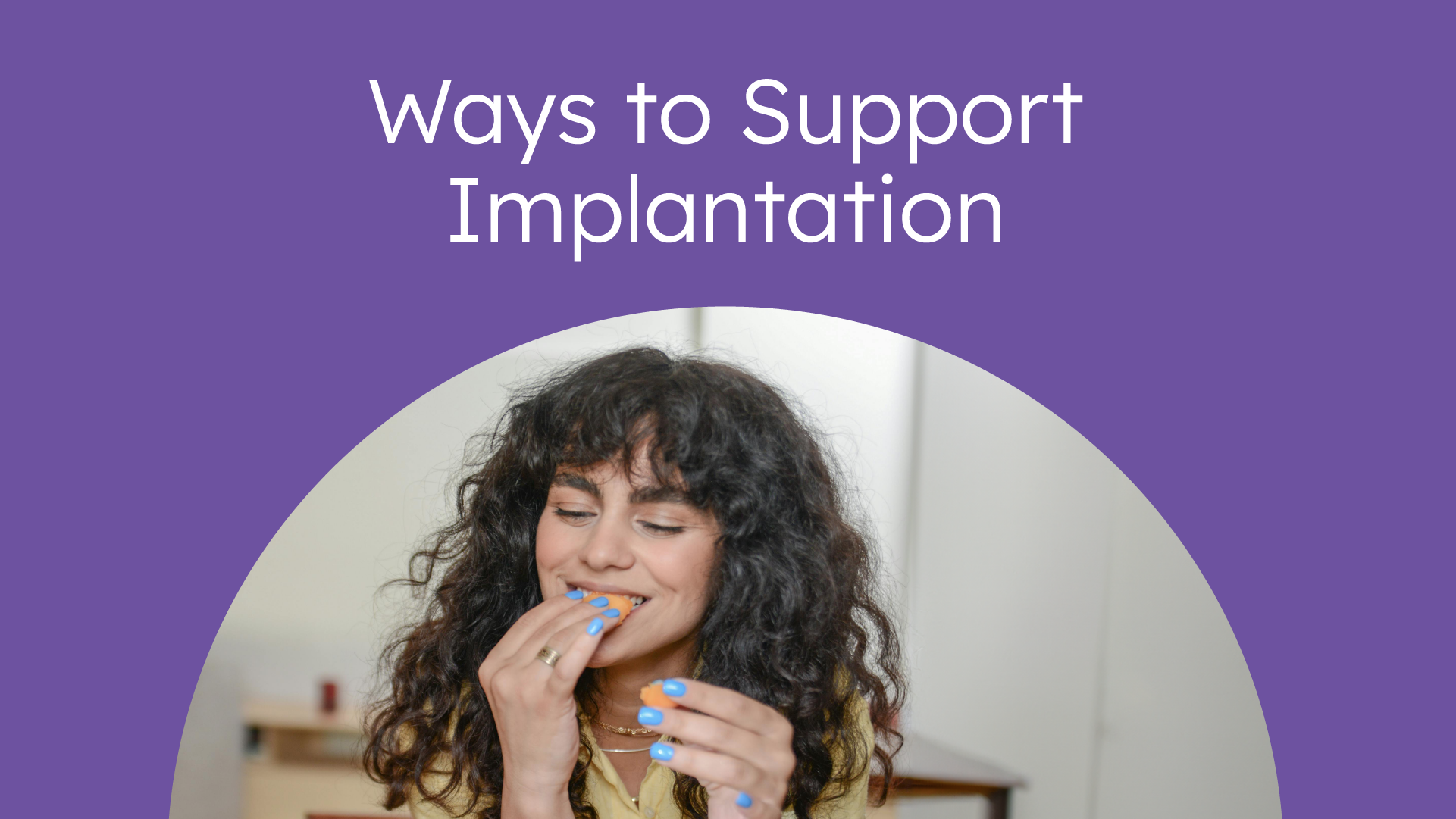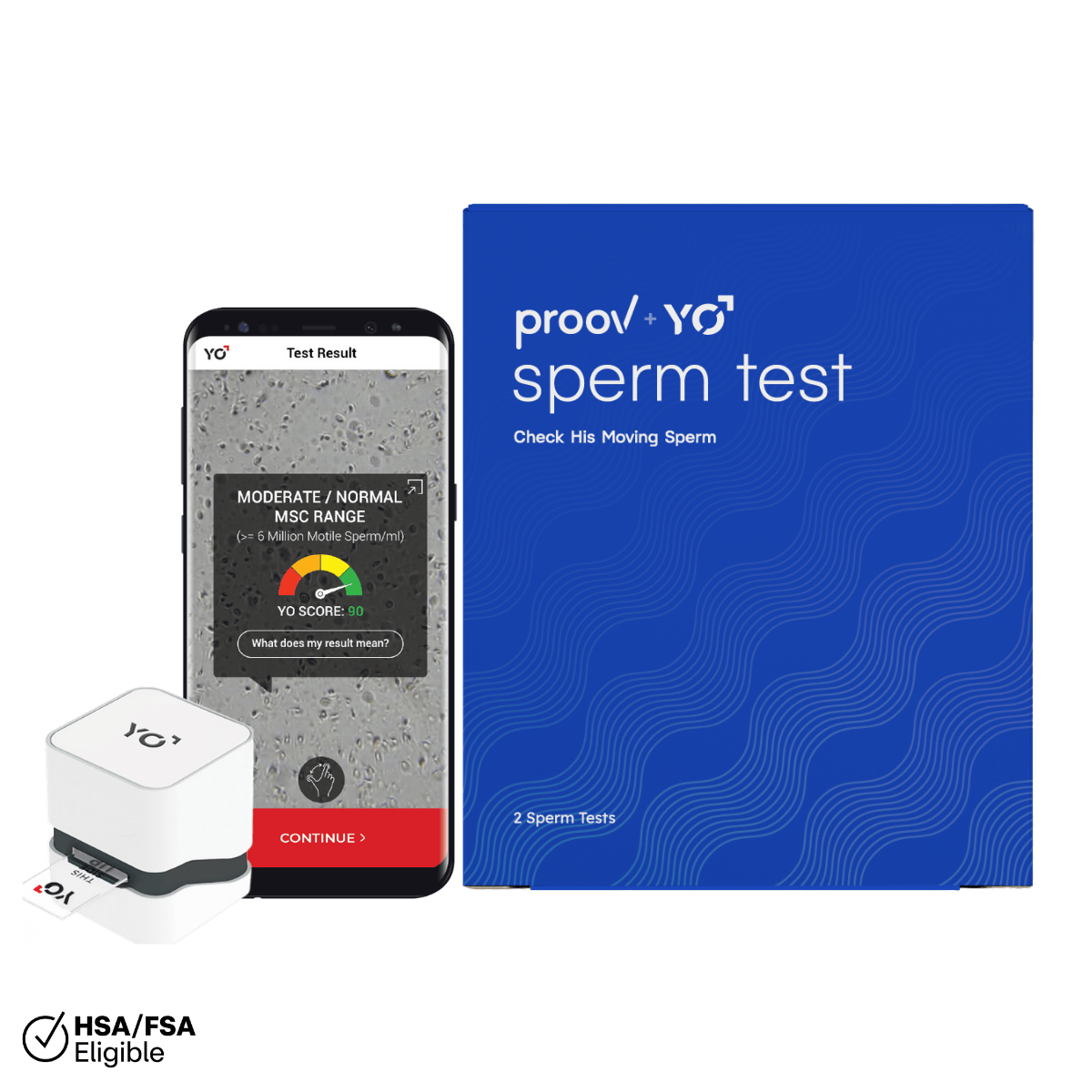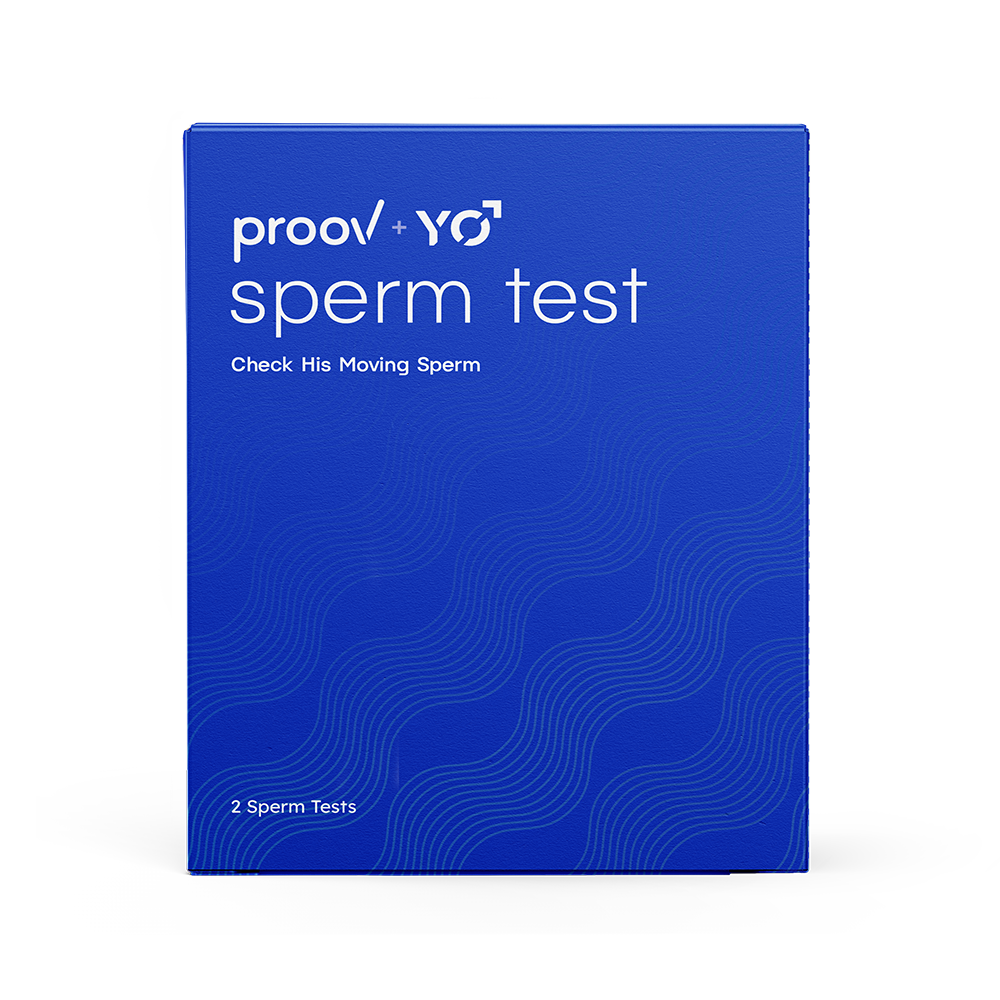Written on 11/13/20
Updated on 6/26/24
Here at Proov, we are big advocates for understanding and supporting successful ovulation! What is successful ovulation? It is when ovulation not only occurs, but the hormone released after ovulation — progesterone — stays adequately elevated for long enough.
And why is progesterone so important? It’s because your amazing uterus needs progesterone to create a cozy home for an embryo. As discussed in more detail below, progesterone is critical for implantation.
What is implantation?
Implantation happens when an embryo buries itself into the lining of the uterus. The uterine lining starts out quite thin prior to ovulation (approximately 2-4mm) and becomes very thick after ovulation during the luteal phase (approximately 7-16mm). When there is no fertilized egg or embryo present, your uterus will shed this thicker lining (hey, Aunt Flo!).
Estrogen thickens the uterine lining to create a site for embryo attachment. The thickened lining is also the source of nourishment for the implanted embryo during the next few weeks until the placenta develops and takes over. Progesterone is what stabilizes the uterine lining and makes it “sticky” enough for an embryo to attach. Without enough progesterone, it can be more difficult for an embryo to successfully implant.
When does implantation occur?
You may remember that during ovulation — which for many women occurs in the middle of your cycle — an egg is released from the ovary and into the fallopian tubes. After ovulation occurs, the egg can be fertilized by sperm in the fallopian tube. It takes about 4-5 days for the fertilized egg to grow into an embryo.
While the embryo is growing, the corpus luteum (empty follicle) produces progesterone to thicken the uterine lining. Approximately 5-7 days after ovulation occurs, the embryo will travel through the fallopian tubes, into the uterus, and start to implant. Implantation is usually complete about 7-12 days after ovulation.
Now that the embryo is snug and sound in the uterine wall, it begins to secrete hCG and just a few days later the hCG levels are high enough that you get a positive pregnancy test!
What are signs and symptoms of implantation?

Vaginal bleeding or spotting
As you might imagine, while the embryo is implanting into your uterine lining, it can trigger some light bleeding. You may experience mild spotting or bleeding, which can be light red, brown or pink. It typically lasts for only 2-7 days and is so light that all you will need is a pantyliner. However, don’t despair if you don’t have any bleeding during your luteal phase. While this “implantation bleeding” does happen for a small percentage of women, it is not a guarantee by any means.
Cramping
You may experience some mild uterine cramping or pinching due to implantation. These cramps are generally much lighter than what you might experience during your period. If the cramps are severe, you’ll want to contact your doctor.
Clear or white vaginal discharge
Sometimes you may experience a thick white or yellow discharge after implantation. This discharge is different from the egg-white cervical mucus you experience prior to ovulation.
Sore breasts
Many women believe the appearance of sore breasts means that implantation has occurred. However, the swelling and tenderness of your breasts may simply be a result of rising progesterone levels during your luteal phase. In fact, most women will never notice anything different from other menstrual cycles during and after implantation.
Misconceptions about implantation
Many women assume their bodies will produce enough progesterone to allow for implantation of an embryo. However, when a woman does not produce enough progesterone for long enough during the luteal phase, it makes it more difficult for an embryo to implant and thrive in the uterine wall. In fact, supporting progesterone production is one of the best ways to support implantation!
Ways to improve chance of implantation
Unmedicated cycle
Despite hearing the same old advice to “just relax”, there are proactive ways to help implantation. When TTC without any reproductive assistance, you want to make sure that your post-ovulatory hormone levels are adequate to support implantation.
One way to do this is by confirming successful ovulation. “Successful” ovulation refers to an ovulatory event where an egg is released and PdG (the urinary progesterone marker) levels remain elevated for long enough to allow for the best possible chance at great implantation and conception. Kits that include PdG tests, like Proov Complete, can help you monitor levels over several days to confirm ovulation was in fact successful.
We like to see elevated levels of PdG (or positive) on days 7, 8, 9, and 10 after peak fertility, this is also known as your implantation window. If one or more of your PdG tests is negative during the implantation window, you may want to consider the following at-home options to support progesterone production:
- Eat progesterone boosting foods
- Seed cycling
- Herbal supplements: vitex (or chasteberry), maca, and red raspberry leaf
You may also want to consult a doctor to obtain a prescription for progesterone. If you’re testing with the Proov app, you have the option to access a fertility doctor and prescription progesterone based on your medical review.
Medicated cycle
If you are undergoing intrauterine insemination (IUI), it is likely that your doctor will be monitoring your progesterone levels during your luteal phase. Additionally, your doctor may monitor the appearance of your uterine lining to ensure your embryo has the best chance at implantation.
If you are undergoing in-vitro fertilization (IVF), an embryo will be transferred into your uterus. If all goes as planned, the embryo will attach to the wall of your uterus.
During most medicated cycles doctors use some sort of progesterone supplementation starting after confirmed ovulation in the case of IUI or before transfer in the case of IVF. This may be in the form of oral pills, vaginal suppositories, or injections.
You may also be using ovulation induction medications without IUI. While the ovulation induction medications themselves can work to increase progesterone production, there may still be a need for progesterone supplementation after ovulation. In many cases, your doctor will monitor levels of progesterone in your blood. However, if your doctor is not willing to offer this monitoring or it is prohibitively expensive, Proov can provide you the insight you need in your PdG levels.
If you have been trying to conceive but unsuccessful, and IUI or IVF are not options for you at this time, Proov Path to Pregnancy can bring you the hormone insights, fertility expertise, and prescription medication you may need to get that BFP you’re hoping for!
Understanding implantation and ways to help implantation can help you get pregnant faster!













